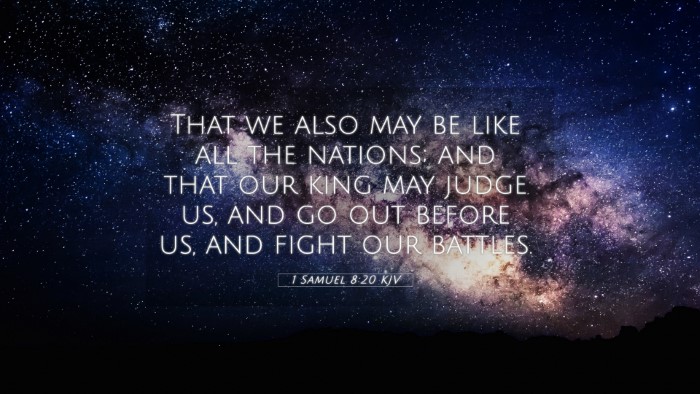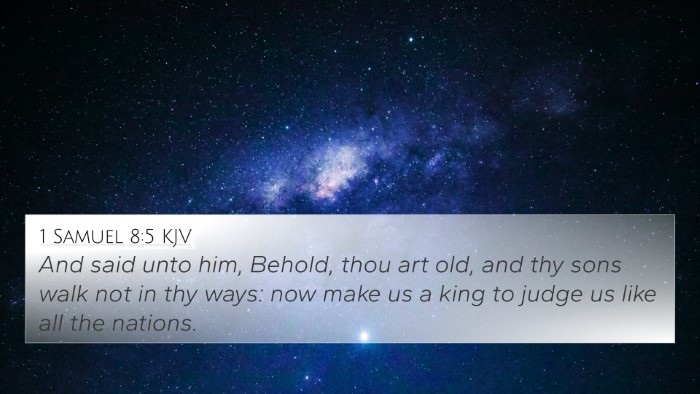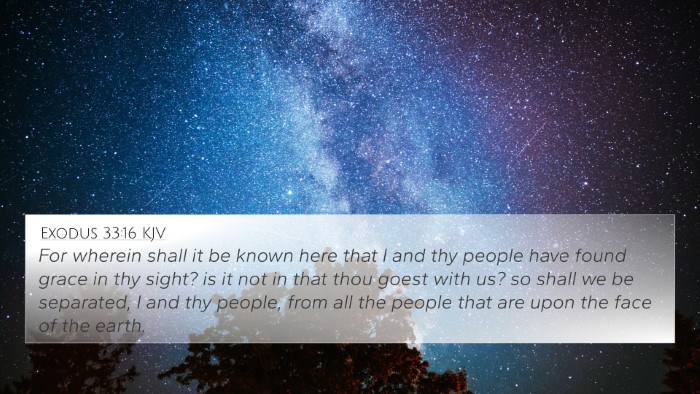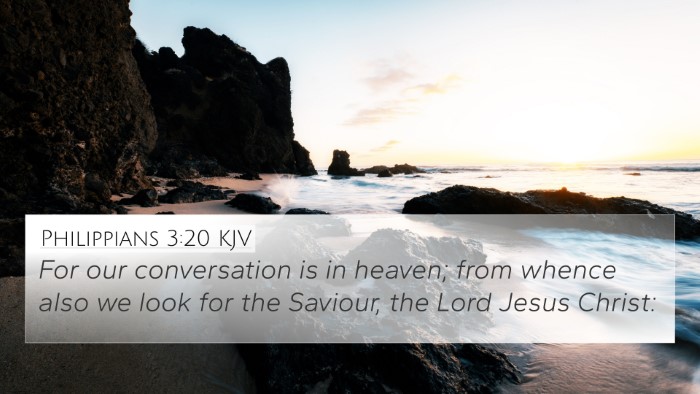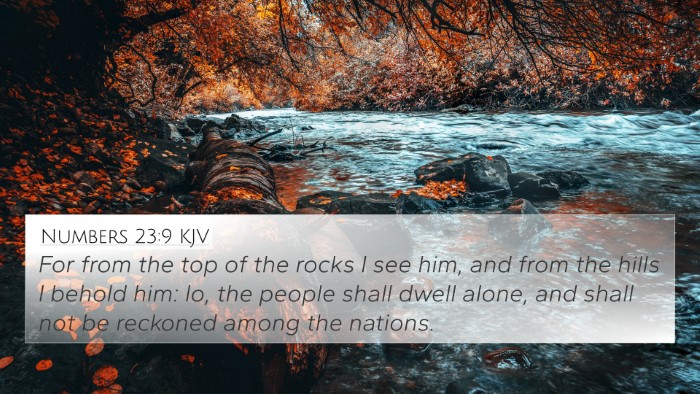Understanding 1 Samuel 8:20
Verse: "That we also may be like all the nations; and that our king may judge us, and go out before us, and fight our battles." (1 Samuel 8:20)
Context and Overview
This verse captures the Israelites' request for a king, signifying their desire to be like other nations. The demand illustrates a pivotal moment in Israel's history as they transition from a theocratic system governed by judges to a monarchy. This change not only reflects a societal shift but also highlights a deeper spiritual dilemma — the abandonment of reliance on God as their ultimate ruler.
Commentary Insights
Matthew Henry's Commentary
Matthew Henry emphasizes the implications of Israel’s request. He explains that the desire for a king was rooted in a lack of faith in God's provision. Instead of relying on God's leadership through judges like Samuel, the Israelites sought a human king who would provide a sense of security and visibility, displaying a foundational distrust in God's sovereignty.
Albert Barnes' Commentary
Albert Barnes comments on the importance of understanding the nature of their request. Barnes indicates that the desire to be "like all the nations" stems from a worldly ambition that often overshadows their unique identity as God’s chosen people. This desire signifies a rejection of God’s kingship and the unique theocratic governance that set Israel apart from other nations.
Adam Clarke's Commentary
Adam Clarke further explores the cultural implications of wanting a king. He discusses how this request reflects the Israelites' ambition for power and prestige, aligning themselves with neighboring cultures. Clarke suggests that this move could lead to significant consequences, namely a loss of their distinctive covenant relationship with God, who had led them successfully through various adversities.
Thematic Connections and Cross-References
The desire expressed in 1 Samuel 8:20 echoes throughout scripture, revealing a recurring theme of humanity's struggle with faith and reliance on God.
- 1 Samuel 10:19: The people's rejection of God is further affirmed when they cry out for a king despite God's warnings.
- Deuteronomy 17:14-15: God's foreknowledge of Israel's demand for a king is articulated, allowing them to choose a ruler under specific divine regulations.
- Isaiah 30:1-3: This passage warns against seeking help from worldly powers rather than trusting in God.
- John 18:36: Jesus declares that His kingdom is not of this world, contrasting the earthly kingship the Israelites desired.
- 1 Samuel 12:12: Samuel contextualizes their request by reminding them of their past deliverances by God.
- Psalms 146:3: This psalm underscores the futility of placing trust in mortal rulers rather than in God.
- Philippians 3:20: Believers are reminded that their citizenship is in heaven, emphasizing the reality of God's kingdom over earthly governance.
- 1 Peter 2:9: This verse reiterates the unique identity of God’s people, contrasting their royal status in Christ with the desire for an earthly king.
- Jeremiah 17:5: The dangers of trusting in man rather than God are proclaimed here, reinforcing the themes present in 1 Samuel 8:20.
- Luke 22:25-26: Jesus teaches about the nature of true leadership and servanthood, contrasting it with the desires expressed by the Israelites.
Conclusion
The request for a king in 1 Samuel 8:20 starkly illustrates the tension between divine leadership and human authority. Through the insights provided by various commentaries, we see a richer interpretation of this demand, reflecting a lack of trust and a desire to conform to worldly standards. This verse serves as a reminder for contemporary believers about the importance of trusting in God's providence rather than seeking alignment with external cultural norms.
Keywords Exploration
This exploration of 1 Samuel 8:20 encompasses various Bible verse cross-references that deepen our understanding of the text. By examining the connections between Bible verses, we uncover a Bible cross-reference guide that highlights not only the direct themes present in 1 Samuel but also broader thematic Bible verse connections throughout scripture. Utilizing tools for Bible cross-referencing allows us to engage in a more comprehensive Bible cross-reference study, enriching our spiritual insight.

